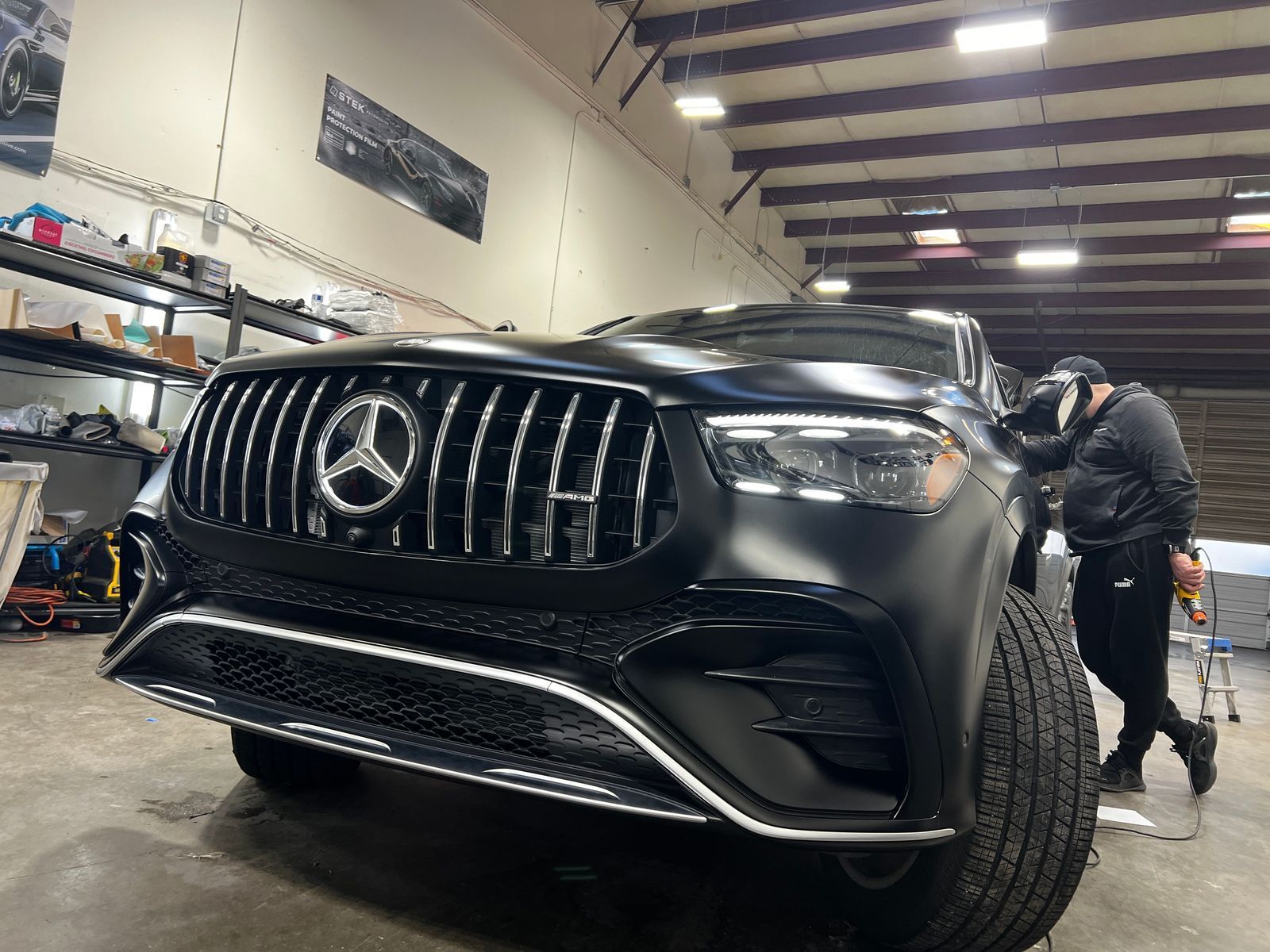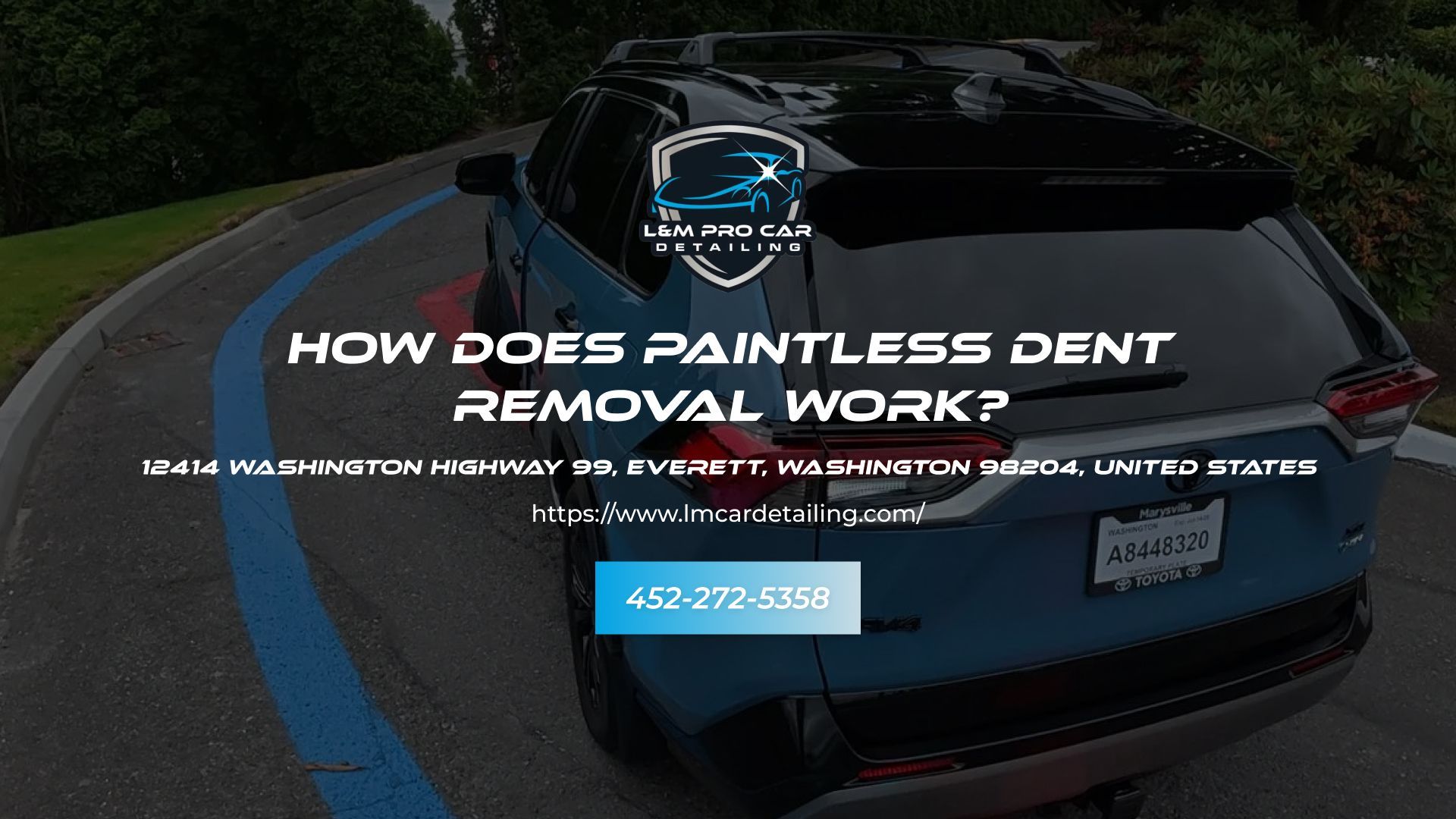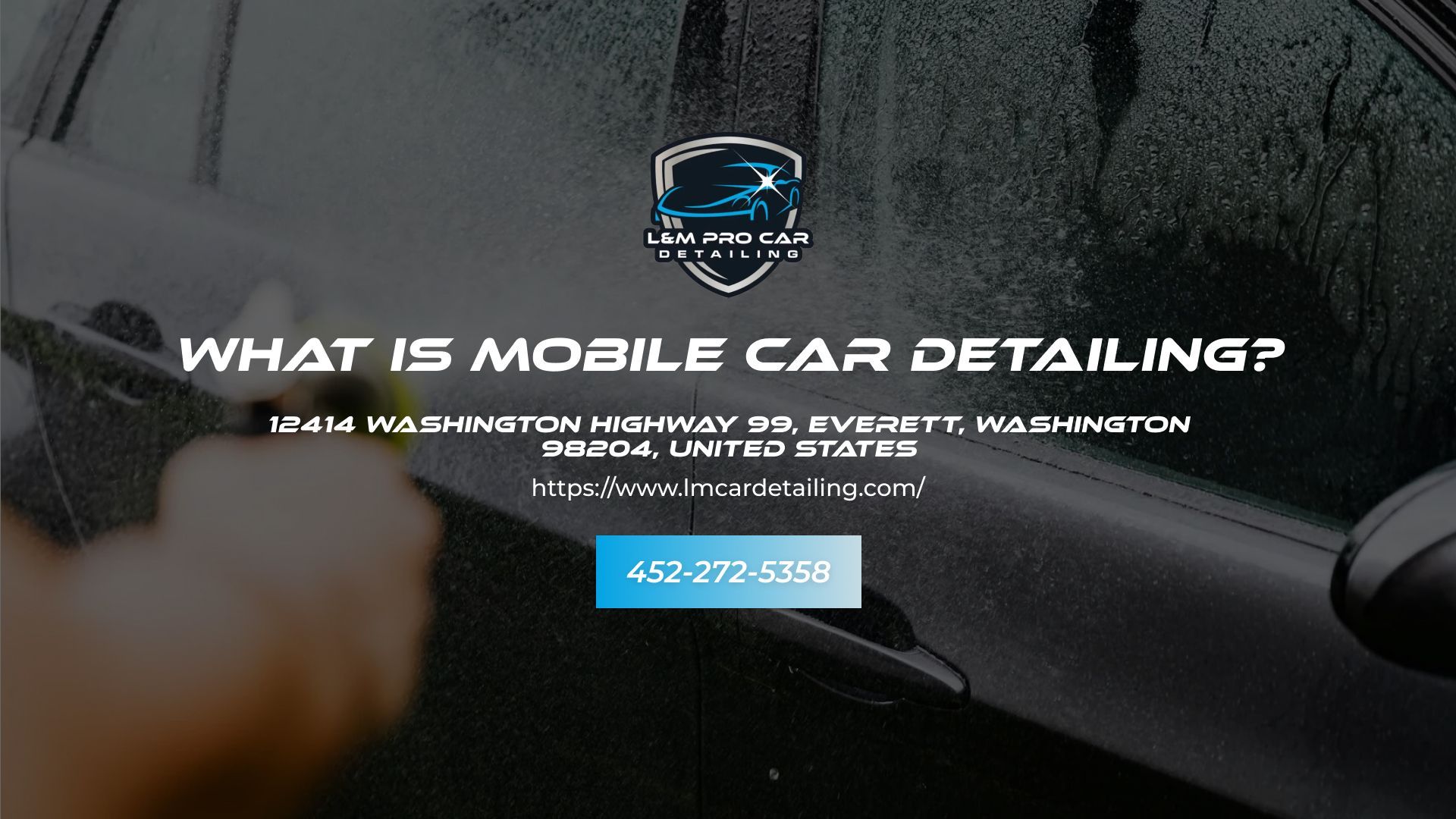How Does Paintless Dent Repair Work?

Paintless Dent Repair (PDR) is a modern, eco-friendly solution that removes dents and dings without damaging your factory paint. L&M Car Detailing provides information to help you better understand: "How does paintless dent repair work?", the rigorous technical process, and the real-world benefits of PDR.
Key Takeaways
- Paintless dent repair (PDR) is a non-invasive process for removing dents without resorting to sanding, filler work, or repaints.
- It ensures that the original paint finish by the manufacturer is maintained. This is because it prevents any discoloration, paint peeling, or
- PDR can decrease repair expenses by 40-60% relative to conventional repair practices, without compromising a vehicle's resale value.
- The process followed by technicians involves five steps: inspection, access, tool selection, dent pulling, and finally, subsequent finishing.
- This service is eco-friendly because it does not require or involve any chemicals. It is also EPA-compliant because it does not produce any waste.
- Paintless Dent Removal is best suited for small dents, hail damage, and door dings. The process can be completed in only 1-3 hours.
How Does Paintless Dent Repair Work?
Understanding Paintless Dent Repair (PDR)
To perform paintless dent repair, technicians use precision tools behind the panel to reshape dents without sanding, repainting, or filling. This repair method improves the appearance, eliminates imperfections, and preserves the original paint finish. PDR services eliminate the risk of paint chipping or corrosion, problems commonly associated with traditional repair methods.
The Paintless Dent Repair Process (Step-by-Step)
To understand "How does paintless dent repair work?" you can refer to the paintless dent repair process. This method uses specialized tools and techniques to restore dents on the vehicle's surface, and each step is carefully calibrated to ensure accuracy.
Step 1: Damage Assessment
Technicians inspect the dents to determine if paintless dent repair is feasible by checking the size, depth, and condition of the paint. Dents with signs of cracking or chipping may not be eligible.
Step 2: Accessing The Dent
Technicians remove trim pieces or lights to safely access the back of the damaged area. Technicians perform this step to ensure that dent removal proceeds smoothly without damaging the vehicle's structure.
Step 3: Tool Selection And Manipulation
The PDR process requires selecting the appropriate tools for the specific type of dent. Therefore, depending on the different dent conditions, experts choose rods, glue pulling systems, and other tools to suit each vehicle.
Step 4: Precision Dent Removal
During paintless dent repair, technicians use gentle pressure for metal restoration. These machines are operated to ensure safe RPM levels for pressure regulation and prevention of metal deformity on the panel's surface.
Step 5: Finishing And Quality Control
Finally, the technicians will carry out polishing, brightening, waxing, and sealing to ensure that protection and restoration work is done on the vehicle. Technicians check each stage with exposure to light before delivering the vehicle.
Benefits Of Paintless Dent Repair
Paintless dent repair (PDR) offers a faster and more cost-effective solution compared to traditional body repair methods. Studies show that PDR can reduce costs by 40-60% while maintaining the resale value of the vehicle.
Preserves Original Paint
Paint-free dent repair protects the vehicle's original paint from mismatched repainting. This method prevents paint chipping and corrosion, helping to maintain the car's originality and keep it looking like new.
Saves Time And Money
PDR is classified as a minor auto repair service because it is quick and efficient. Removing dents quickly usually only takes a few hours and is less expensive because it doesn't require extensive labor, fillers, sanding, or repainting.
Environmentally Friendly Repair
All PDR methods adhere to EPA standards for sustainable vehicle care. The paintless dent repair process minimizes waste by eliminating paint and chemicals.
Maintains Vehicle Value
Restoring the vehicle through paint-free dent repair helps preserve the OEM paint and maintain the vehicle's resale value.
Paintless Dent Repair Vs. Traditional Dent Repair
Both paintless dent repair and traditional dent repair aim to restore the appearance of a vehicle, but they use completely different methods. We provide you with a comparison table of the characteristics of these two methods.
| Aspect | Paintless Dent Repair (PDR) | Traditional Dent Repair |
|---|---|---|
| Method | Non-invasive, no-paint dent removal by pressure with specific tools | Requires sanding, filler work, and repainting |
| Paint Condition | Preserves factory paint | Requires repainting or refinishing |
| Repair Time | Typically, 1–3 hours for small dents | 2–3 days, including drying time |
| Cost | 40–60% lower due to no materials or paint | Higher because of labor and materials |
| Eco-Friendliness | Chemical-free and EPA-compliant | Uses solvents and paint materials |
| Ideal For | Minor dents, hail impact, and door dings | Moderate dent or chipping of paint |
| Risks | Very low, no breakage or paint chipping | Higher risk of paint chipping or damage |
| Longevity | Long-lasting with proper protection and care | Paint can fade or peel over time |
The choice between PDR and traditional repair depends on the type and severity of the dent. For small to medium-sized dents with intact paintwork, paintless dent repair offers faster repair times, lower costs, and is more environmentally friendly. When the paintwork or structure is severely damaged, traditional repair is still necessary.
Is Your Dent Suitable For Paintless Dent Repair?
Dents caused by hail, door impacts, dents along the body of the car, or crease-shaped dents are all suitable for paintless dent repair. However, to choose the appropriate repair method, you should have technicians inspect the areas needing repair to assess the elasticity of the paint. If there are cracks, chips, or peeling paint, your car may require repair using other methods.
Ready To Restore Your Vehicle? Book Your Paintless Dent Repair Today!
Ready to fix those dents without visiting a body shop? Contact us to schedule your mobile Paintless Dent Repair with L&M Car Detailing today. Our certified technicians bring all tools, power, and expertise to your driveway, delivering flawless, eco-friendly results in just hours.
FAQ
Does paintless dent repair (PDR) affect my car’s warranty?
No. PDR does not void your car’s warranty because it doesn’t involve any paint or filler.
Is hail damage repairable by PDR?
Yes, hail dent repair is definitely one of the most popular types of PDR. This small repair job is a great way to restore body panels while protecting against any corrosion damage.
What is the cost of paintless dent repair in my area?
The average expense for removing a dent from a car can cost between $100 and $250 for each panel.
How long does paintless dent repair take?
Generally, PDR can be done relatively quickly, in 1 to 3 hours. If it is more complex, it can take longer for polishing and protection, but it will be accomplished in one day.
Is paintless dent repair worth it?
Yes, paintless dent repair is definitely worthwhile for most drivers as it helps restore the car's appearance without affecting the original paintwork, saving both time and money.

Recent Blogs








